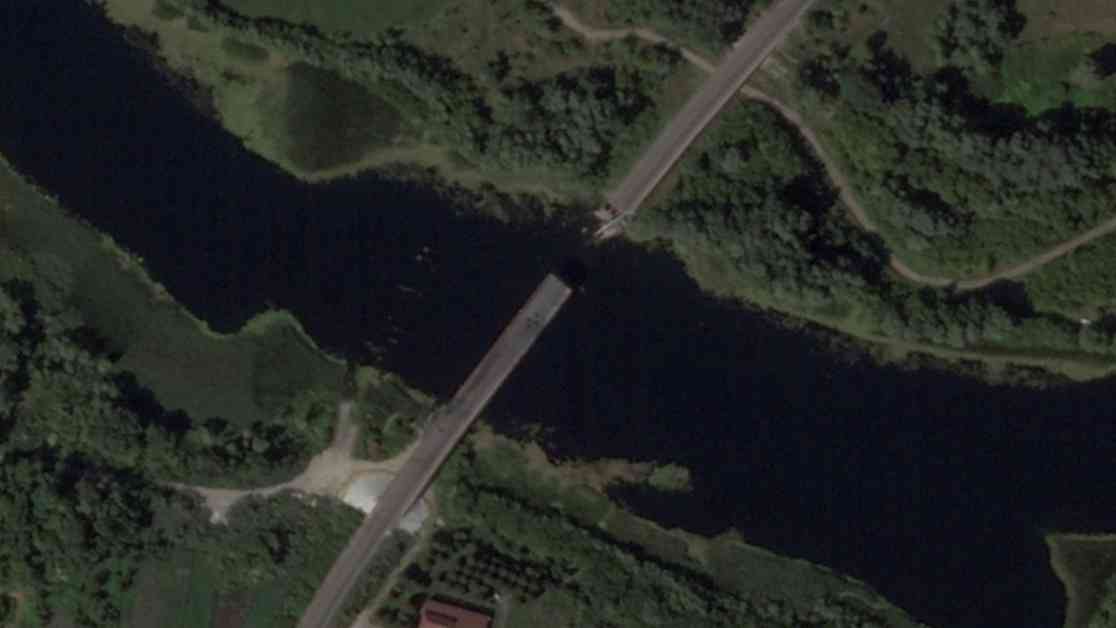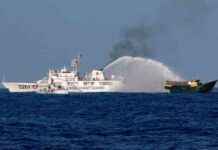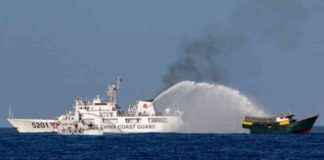The Caucasus-Russia Region was rocked by another explosion, this time targeting the second bridge in the area. The Ukrainian army has been blamed for the detonation, which occurred as Russian forces continue to advance in the Donbass region. International news outlets reported that the fighting in the Caucasus region escalated on Sunday, August 18, 2567, just 13 days after Ukraine sent troops across the border to launch an attack, managing to seize several border villages. Meanwhile, Russian forces are mobilizing to reclaim territory in Novorossiysk.
Ukrainian Offensive
Ukrainian President Volodymyr Zelensky addressed the nation through a video clip on Sunday, stating that the Ukrainian army’s position in the Caucasus region is strengthening. He emphasized that they are fortifying their positions while conducting precise airstrikes and destroying the second bridge over the Seym River in the Caucasus region. This strategic move is part of an effort to limit Russia’s military capabilities. Just two days prior, Ukraine had destroyed another bridge over the Seym River, prompting Russia’s Ministry of Foreign Affairs to accuse Ukraine of using weapons obtained from the West, possibly the HIMARS missile system from the United States.
The Ukrainian observation organization known as “DeepState” reported on Sunday that Russian forces have increased their incursions into the Caucasus region, sharing still images from a video showing Ukrainian tanks in the village of Olhovka, approximately 20 kilometers north of Sudcha. Ukrainian forces managed to capture Sudcha, just a few kilometers from the border, shortly after launching their assault, establishing a military headquarters there. Analysts suggest that Ukraine’s cross-border attack serves multiple purposes, including boosting morale among troops who have faced heavy Russian attacks in recent months and diverting Russia’s attention away from the Eastern Front.
Russian Advancement
Despite Ukraine’s efforts, Russian forces continue to make significant advances in the Donbass region. Most recently, Russia has moved closer to the city of Pokrovskoye in the Donetsk region, a strategically important location for Ukraine as it serves as a key military hub connecting to the city of Kostiantynivka. This proximity allows for easier troop movement and evacuation, making it a critical point for Ukrainian defense.
Sergei Dobryak, the mayor of Pokrovskoye, admitted on Sunday that Russian forces are only 11 kilometers away from the city center. He confirmed that every town in the Donetsk region has a dedicated combat unit stationed there, prepared to defend against any potential threat. However, the escalating presence of Russian forces has forced residents to evacuate Pokrovskoye more quickly. In the past week alone, around 1,800 people have fled the city, a significant increase from the previous average of 450-500 evacuations per month.
Humanitarian Crisis
The growing conflict in the Caucasus-Russia region has resulted in a deepening humanitarian crisis, with civilians bearing the brunt of the violence. The rapid escalation of hostilities has forced thousands of people to flee their homes, seeking safety in neighboring regions or countries. Aid organizations are struggling to provide assistance to those in need, as the ongoing conflict hinders their efforts to reach affected populations.
The United Nations has expressed grave concern over the deteriorating situation in the region, calling for an immediate ceasefire and unhindered access for humanitarian aid workers. The UN Security Council is set to convene an emergency session to address the crisis and explore potential solutions to alleviate the suffering of civilians caught in the crossfire.
Amidst the chaos and destruction, stories of resilience and solidarity have emerged. Local communities have come together to support one another, offering shelter, food, and medical assistance to those in need. Volunteers and aid workers are working tirelessly to provide essential services to displaced families, ensuring that basic needs are met in the midst of uncertainty and fear.
As the conflict in the Caucasus-Russia region continues to escalate, the international community must remain vigilant in monitoring the situation and advocating for a peaceful resolution to the crisis. The plight of civilians caught in the crossfire must not be forgotten, and efforts to provide humanitarian assistance and protection must be prioritized to prevent further suffering and loss of life. Only through concerted diplomatic efforts and a commitment to dialogue can lasting peace be achieved in the region.




















